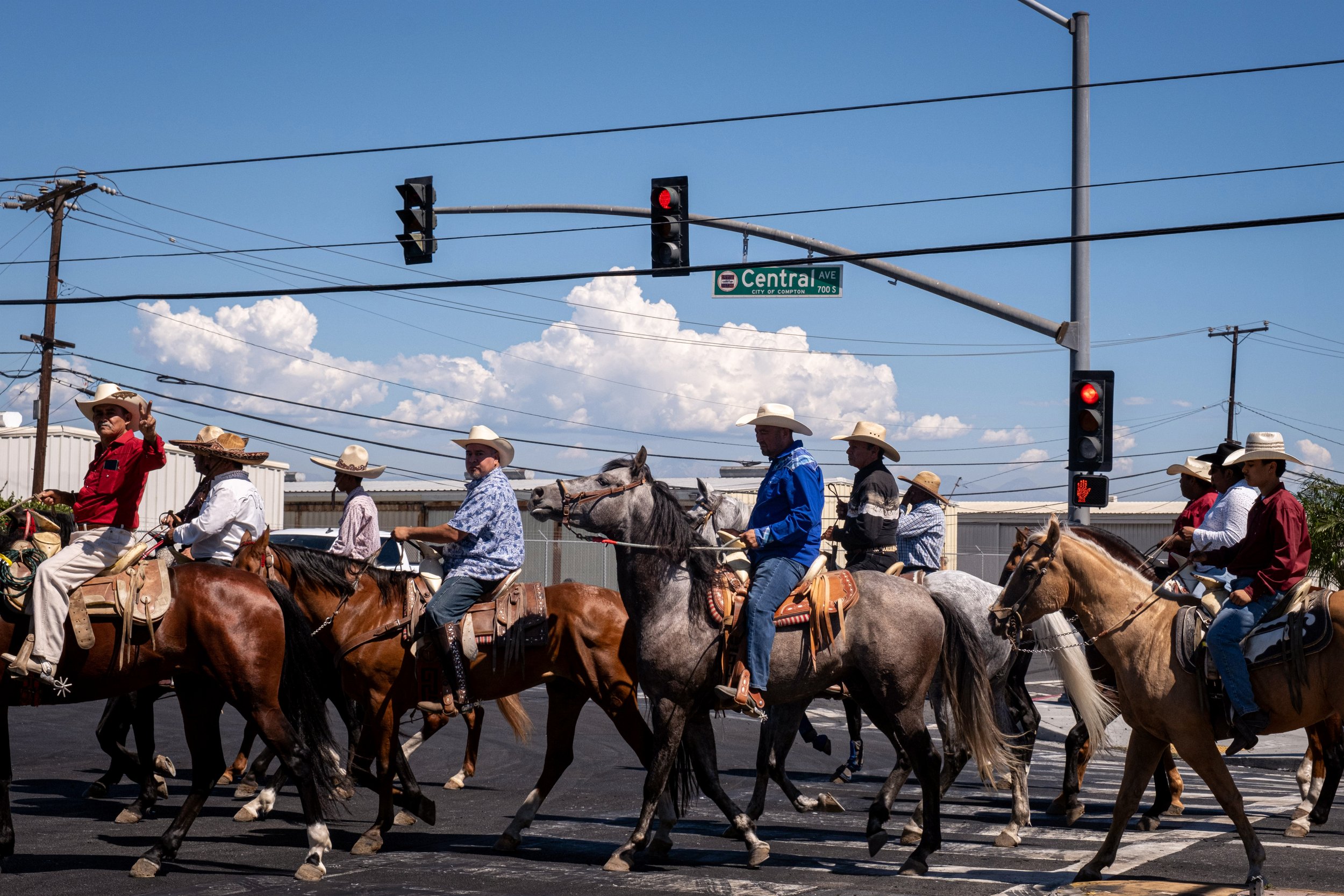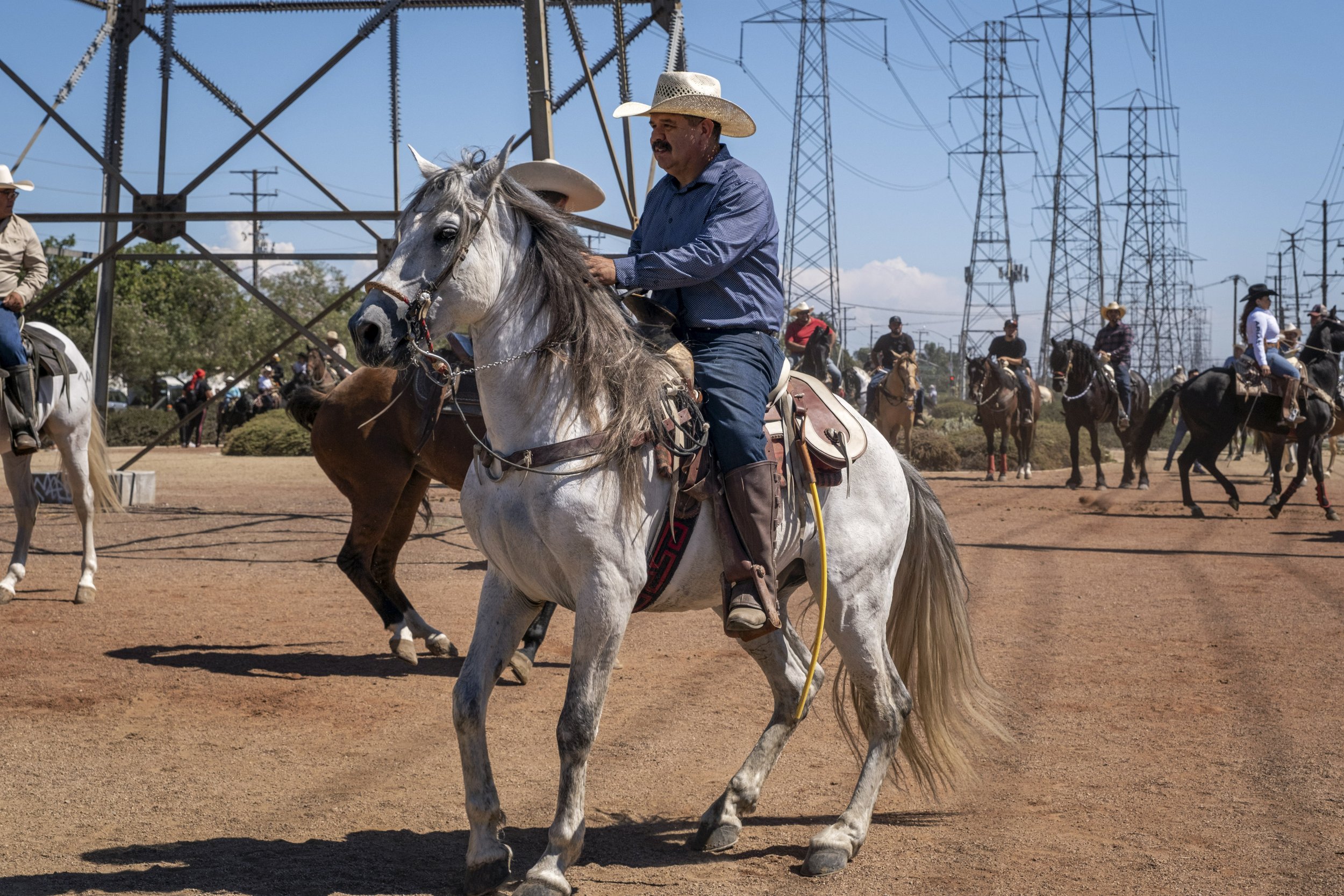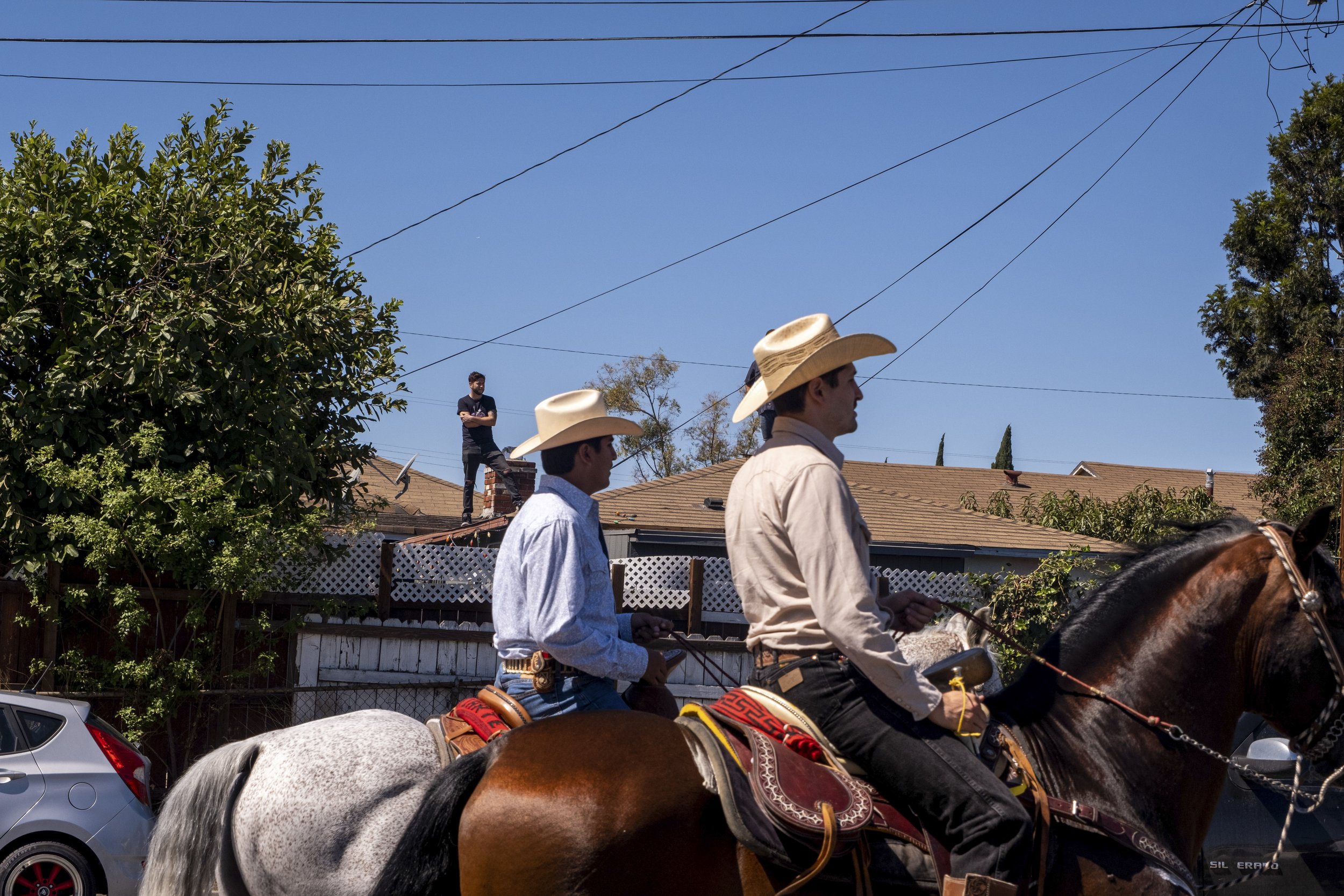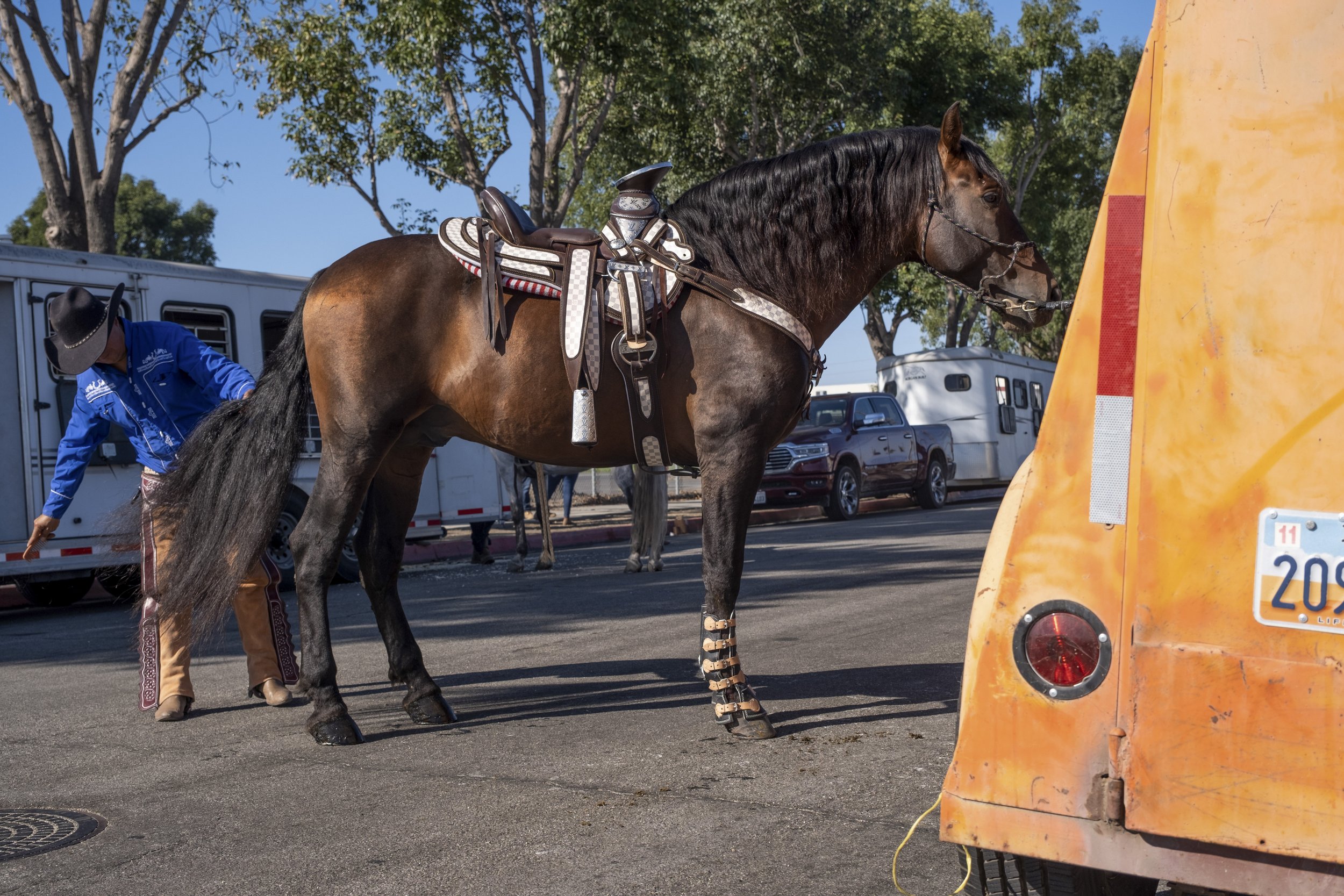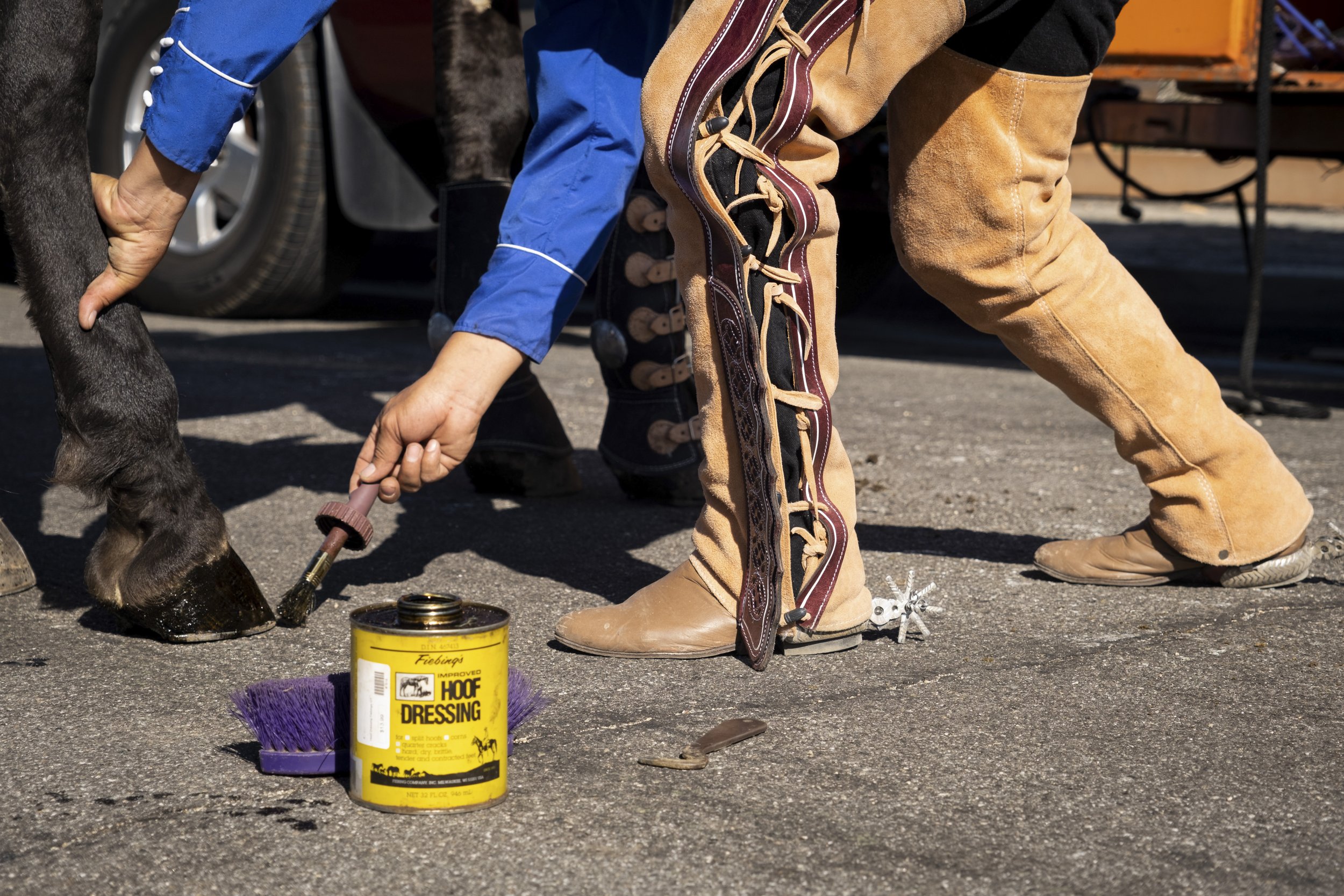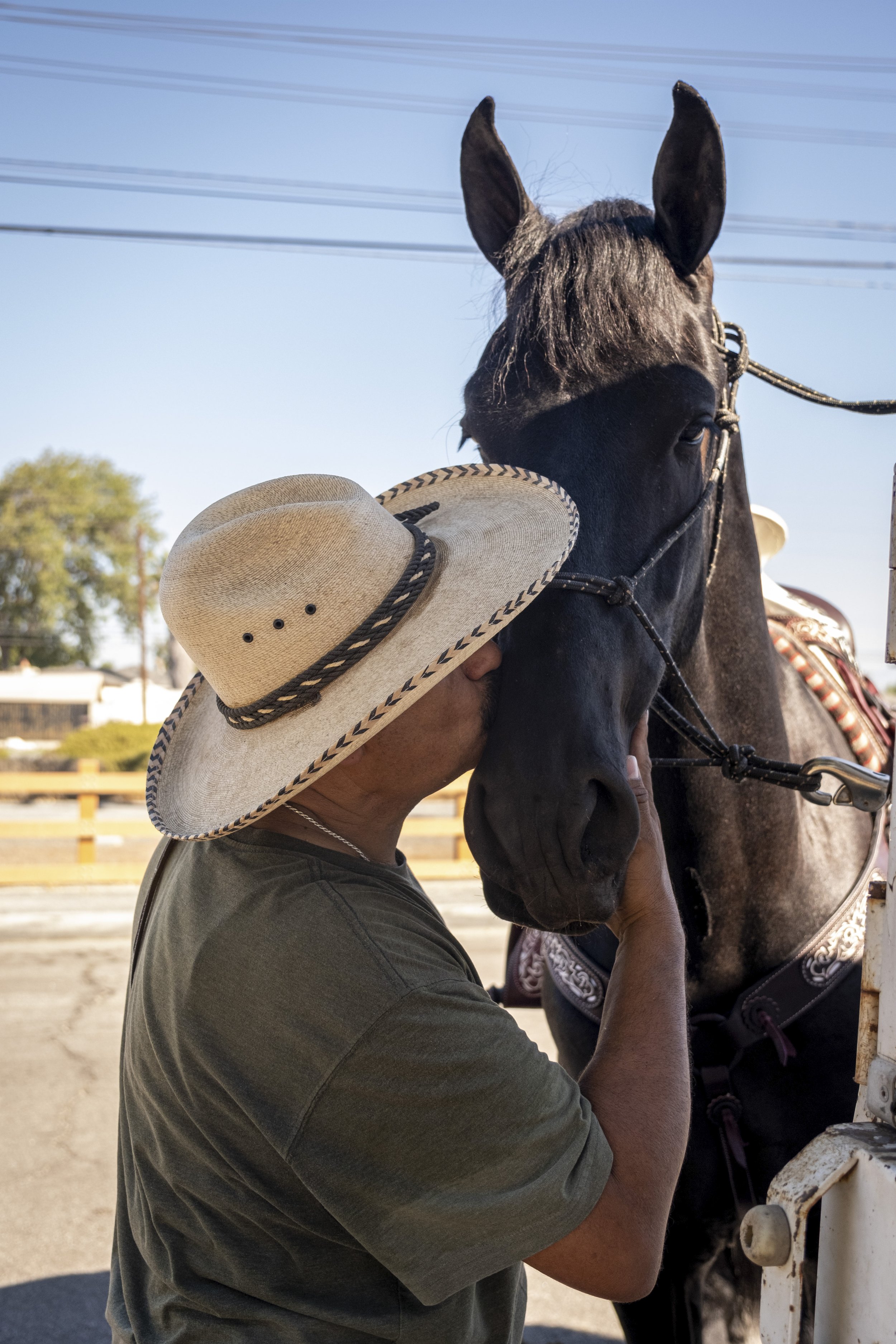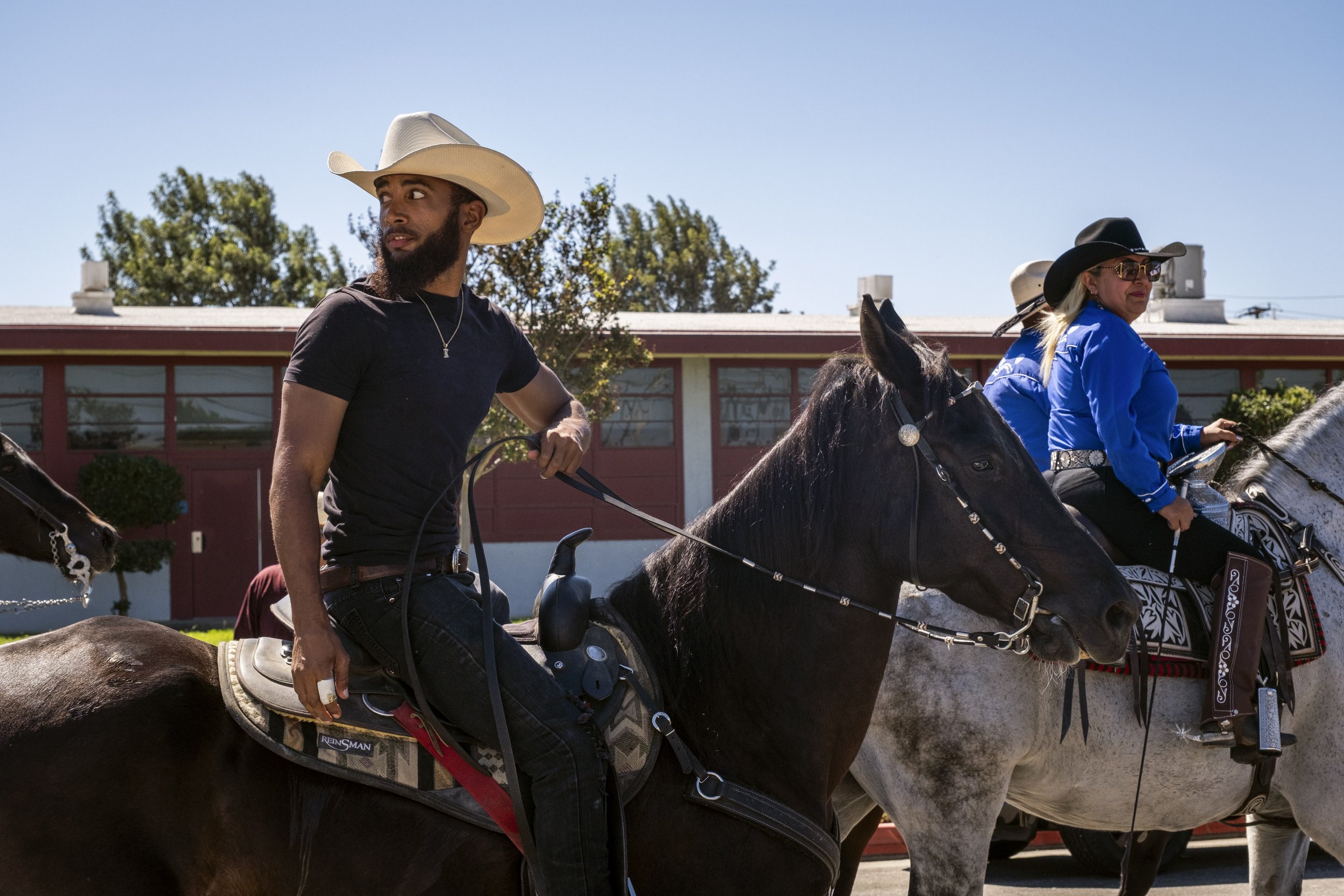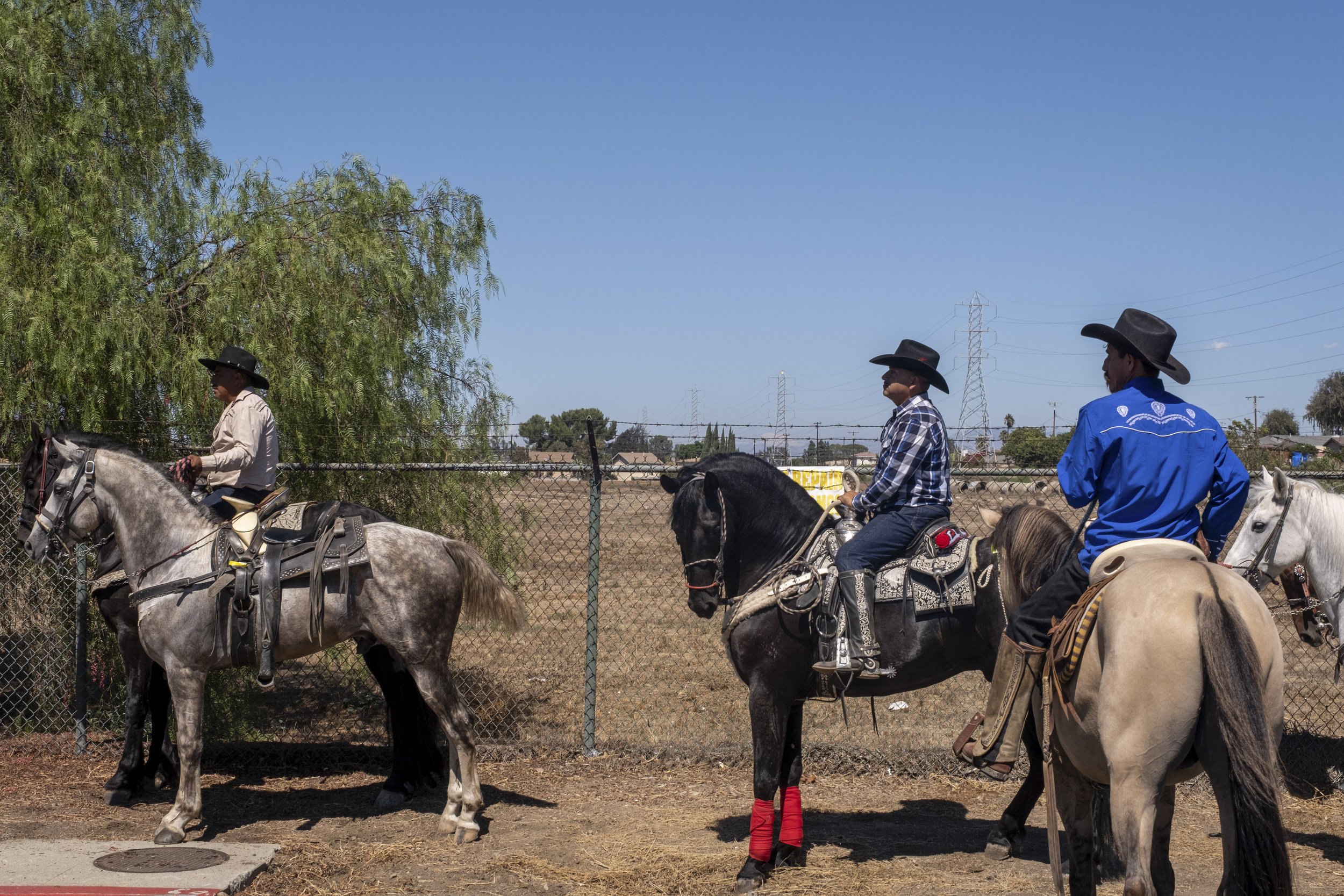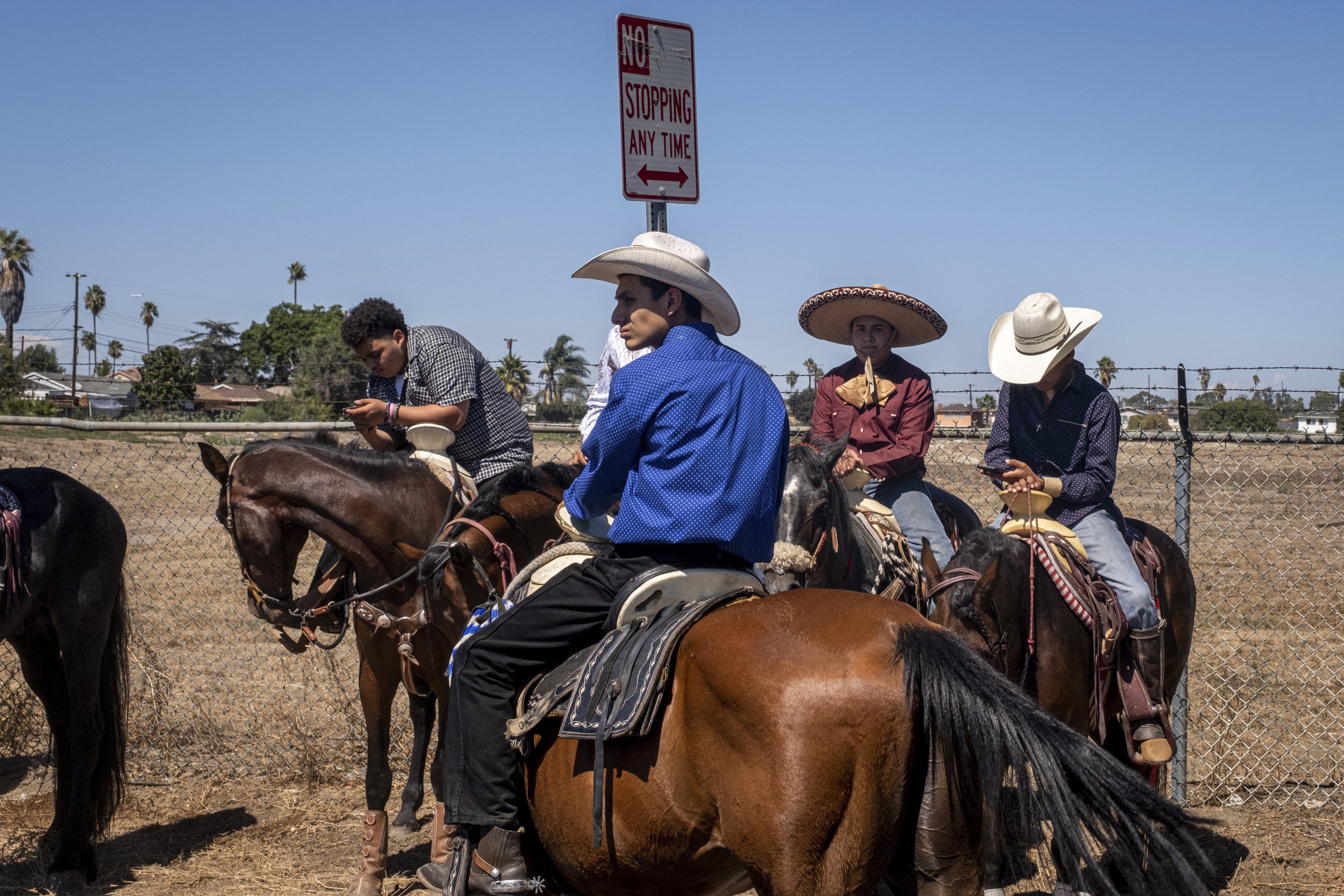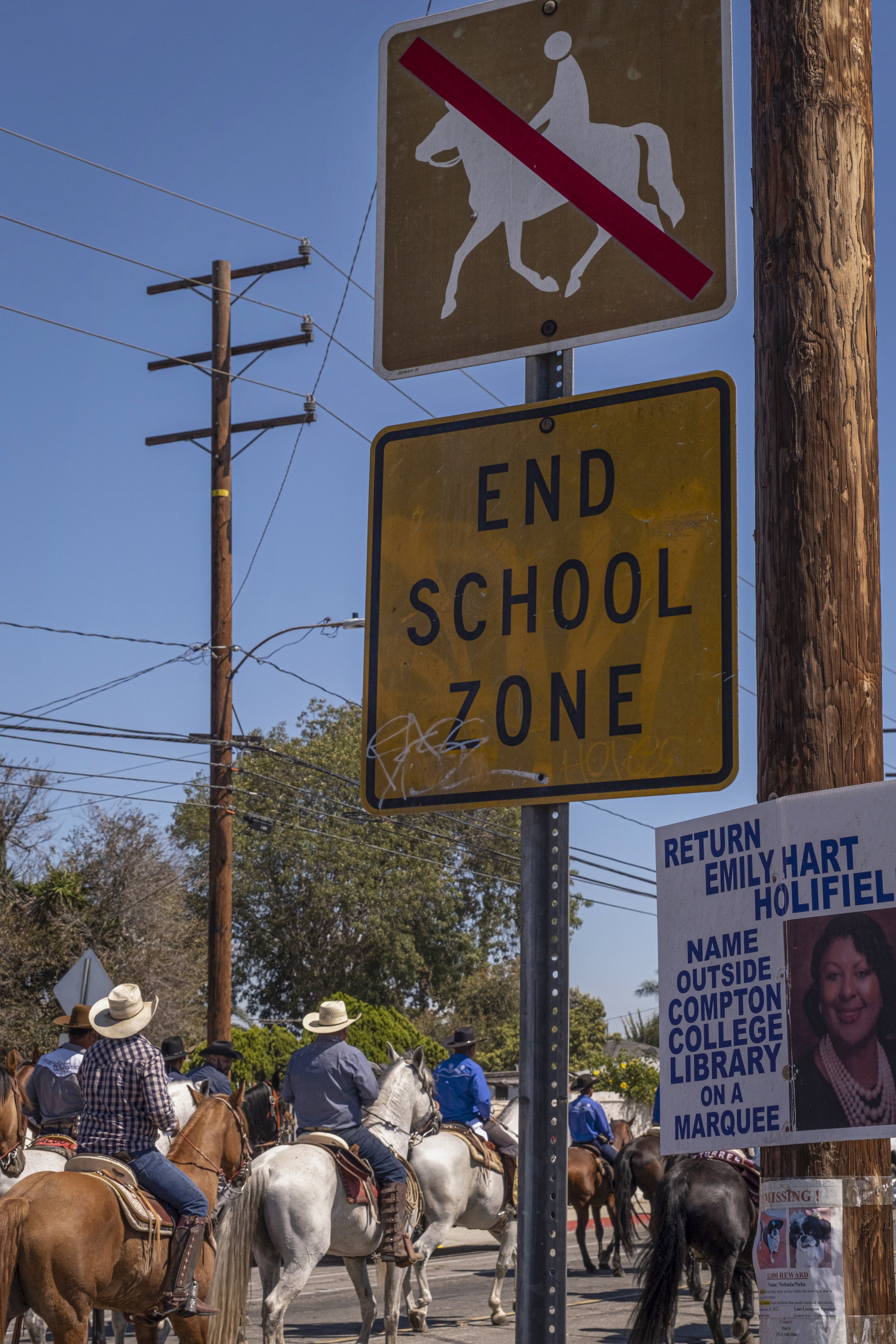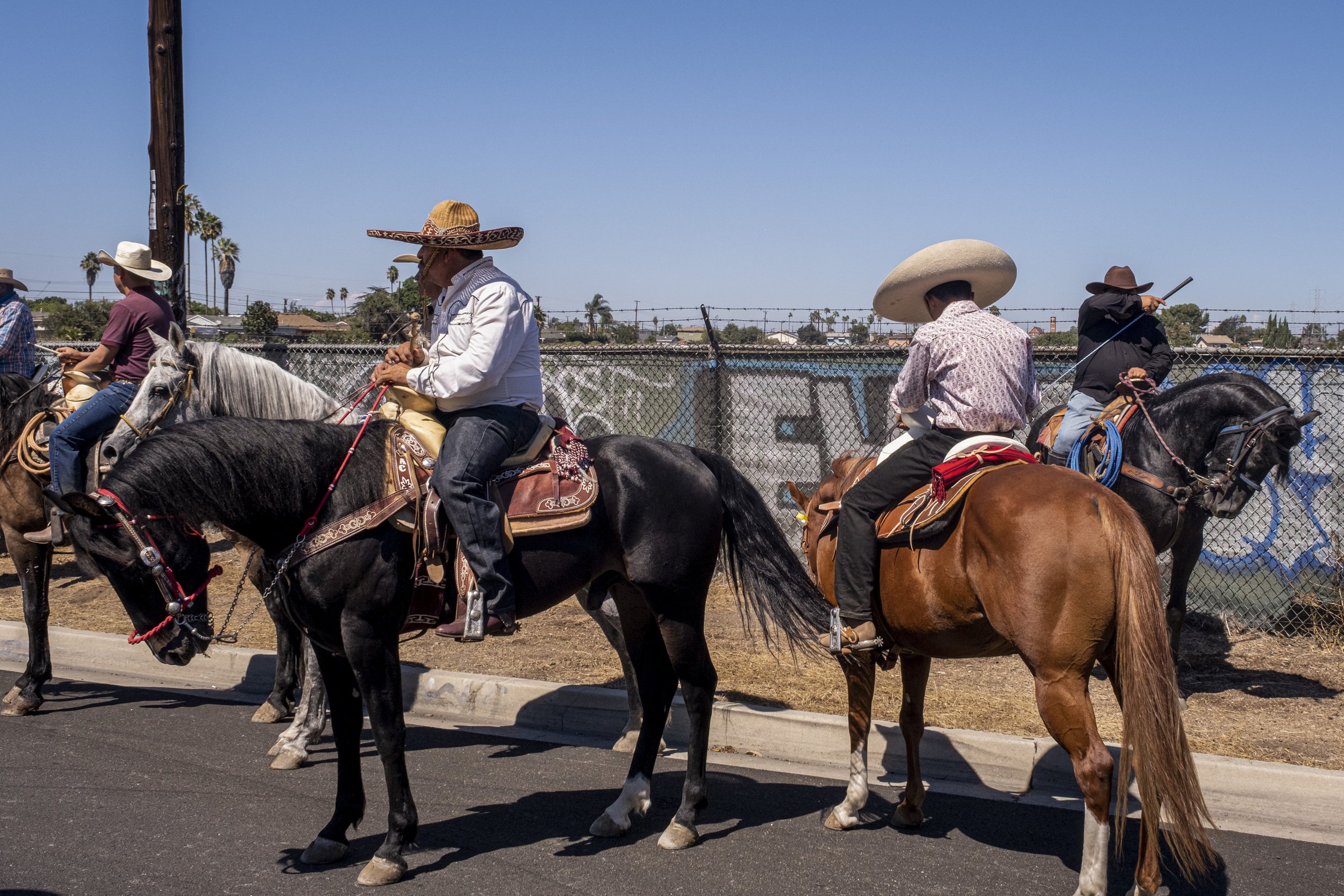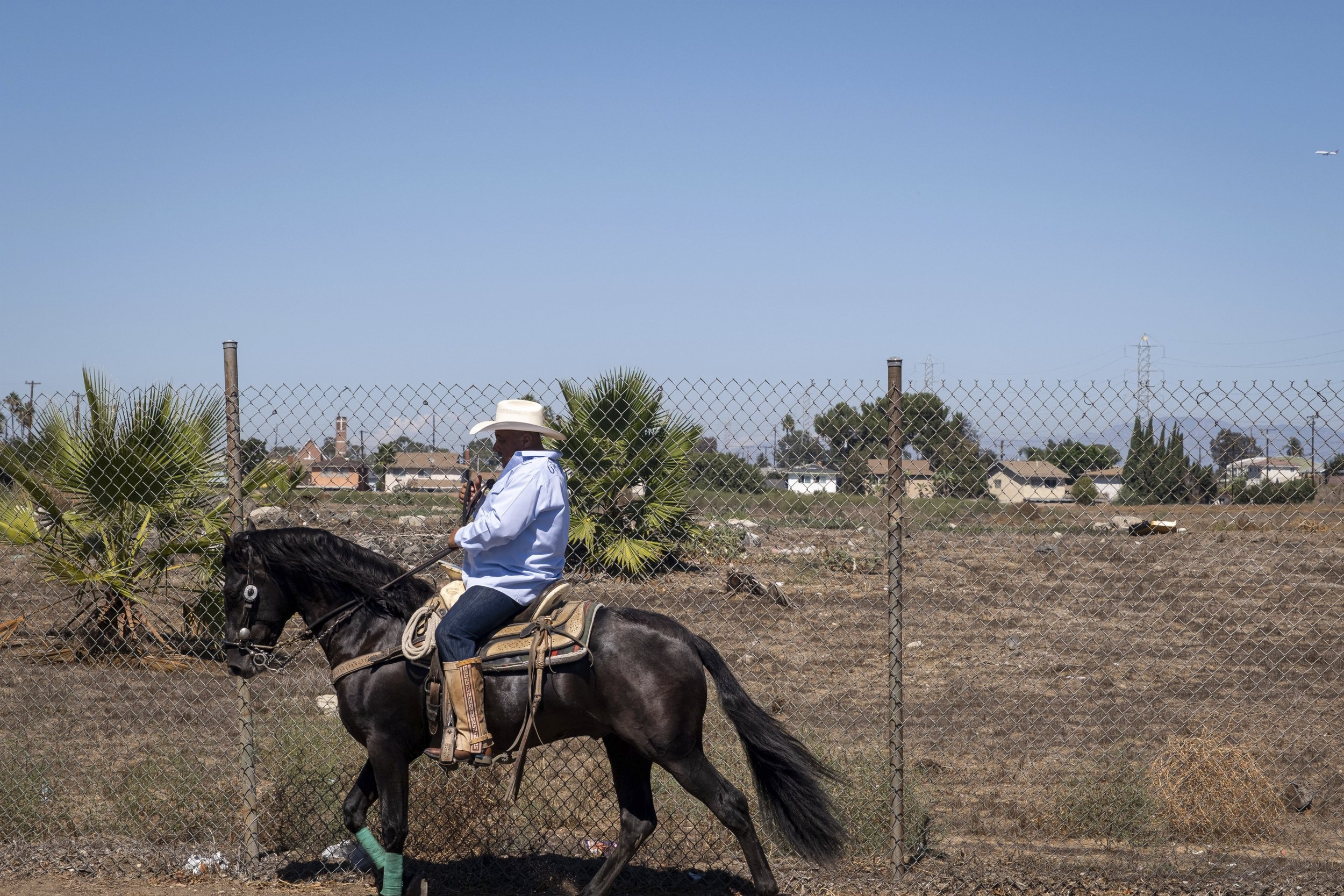Celebrating Compton's Agricultural Roots
Toroteo shakes his head next to the parked trailer. His riders transported him from Del Amo, Long Beach, to El Dia Del Ranchero Cabalgata in Compton, Calif., on Sunday, Sept 25. (Anna Sophia Moltke | The Corsair)
With over two hundred horses slow-trotting through the streets of Compton, the third annual El Dia Del Ranchero Cabalgata kicked off on Sunday, September 25. Through equestrian appreciation, non-profit organizations such as Connecting Compton, Compton Cowboys, and Urban Saddlers gathered together to bring awareness to the importance of keeping the agriculture zoning within the city of Compton.
Beginning on Greenleaf Boulevard, Connecting Compton led the herd of riders across Alondra Boulevard to an empty site where the non-profit advocates for a Multicultural Equestrian Center to be built. The three founders of Connecting Compton, Rogelio Diaz, Hector Gomez, and Daniel Zepeda, united together from their shared appreciation of equestrian culture. Working as teachers in the inner-city, they pursue their goal of building the center on a currently vacant Brownfield site.
Rogelio Diaz, one of the three founders of Connecting Compton, shared current roadblocks to the Multicultural Equestrian Center; he said, "instead of helping support the horse community that exists here in Compton, they've actually now put no horse signs in the parks where we have our events. They've gone the opposite direction and are now trying to create limitations and parameters that are kind of closing us in."
Diaz says a more self-sufficient way of life has always been the norm for the Rancheros community, “Back in 1888, when the city was founded … you’ve had people on horseback, people with cows, horses, chickens, here enriching the farm. ... In the past, people could sell chickens, eggs, milk, straight from their own ranch. Unfortunately, now that the demographic has changed, it's illegal. You can't sell, you know, any of that stuff.”
The City of Compton failed to follow through with Connecting Compton’s permit request. The cowboys persisted.
As the horse’s hooves clapped throughout the streets, neighborhood residents looked out of windows or stepped outside their doors to view the many cowboys roaming past. "When we ride our horses through any block here in Compton, it may be a gang block, it may be a territory that's dangerous; if you ride in with the horse, it completely makes it neutral ground. And every kid comes out of the house and runs over, saying hi, petting the horse. And it just, it has that power," said Diaz.
Connecting Compton hopes to improve community relations by establishing the Multicultural Equestrian Center, “We create a workforce, employment opportunities, we want to be able to help our kids with special needs. The three of us, the founders, we're educators. I work at Locke High School where we have a high number of students with disabilities. There's a lack of resources for our kids in general, but especially our kids with disabilities."
"What we've been asking the city is, 'Hey, we need you to be our champion.' But unfortunately, they're turning into the opposition. And that's where we're at today," said Diaz.


